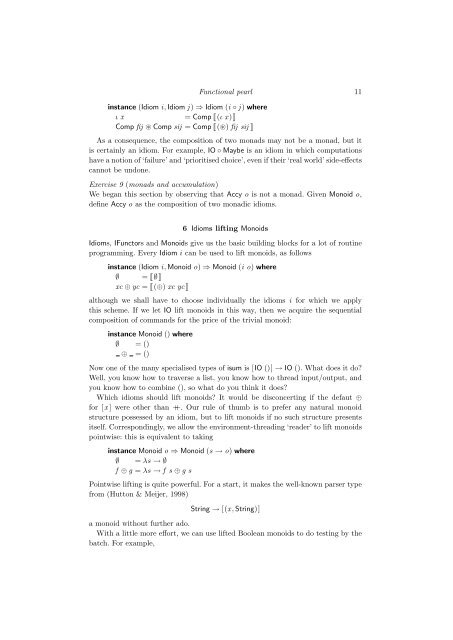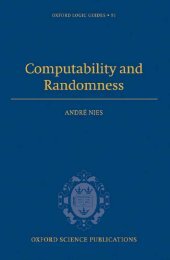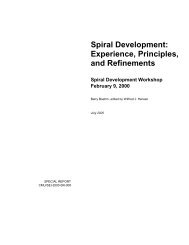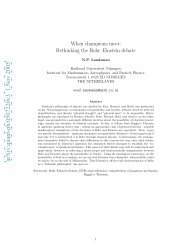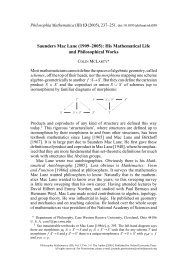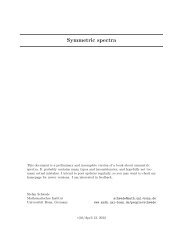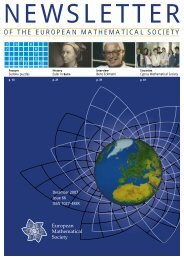Idiom
Idiom
Idiom
Create successful ePaper yourself
Turn your PDF publications into a flip-book with our unique Google optimized e-Paper software.
instance (<strong>Idiom</strong> i, <strong>Idiom</strong> j ) ⇒ <strong>Idiom</strong> (i ◦ j ) where<br />
ι x = Comp (ι x)<br />
Comp fij ⊛ Comp sij = Comp (⊛) fij sij <br />
Functional pearl 11<br />
As a consequence, the composition of two monads may not be a monad, but it<br />
is certainly an idiom. For example, IO ◦ Maybe is an idiom in which computations<br />
have a notion of ‘failure’ and ‘prioritised choice’, even if their ‘real world’ side-effects<br />
cannot be undone.<br />
Exercise 9 (monads and accumulation)<br />
We began this section by observing that Accy o is not a monad. Given Monoid o,<br />
define Accy o as the composition of two monadic idioms.<br />
6 <strong>Idiom</strong>s lifting Monoids<br />
<strong>Idiom</strong>s, IFunctors and Monoids give us the basic building blocks for a lot of routine<br />
programming. Every <strong>Idiom</strong> i can be used to lift monoids, as follows<br />
instance (<strong>Idiom</strong> i, Monoid o) ⇒ Monoid (i o) where<br />
∅ = ∅<br />
xc ⊕ yc = (⊕) xc yc <br />
although we shall have to choose individually the idioms i for which we apply<br />
this scheme. If we let IO lift monoids in this way, then we acquire the sequential<br />
composition of commands for the price of the trivial monoid:<br />
instance Monoid () where<br />
∅ = ()<br />
⊕ = ()<br />
Now one of the many specialised types of isum is [IO ()] → IO (). What does it do?<br />
Well, you know how to traverse a list, you know how to thread input/output, and<br />
you know how to combine (), so what do you think it does?<br />
Which idioms should lift monoids? It would be disconcerting if the defaut ⊕<br />
for [x ] were other than +. Our rule of thumb is to prefer any natural monoid<br />
structure possessed by an idiom, but to lift monoids if no such structure presents<br />
itself. Correspondingly, we allow the environment-threading ‘reader’ to lift monoids<br />
pointwise: this is equivalent to taking<br />
instance Monoid o ⇒ Monoid (s → o) where<br />
∅ = λs → ∅<br />
f ⊕ g = λs → f s ⊕ g s<br />
Pointwise lifting is quite powerful. For a start, it makes the well-known parser type<br />
from (Hutton & Meijer, 1998)<br />
String → [(x, String)]<br />
a monoid without further ado.<br />
With a little more effort, we can use lifted Boolean monoids to do testing by the<br />
batch. For example,


